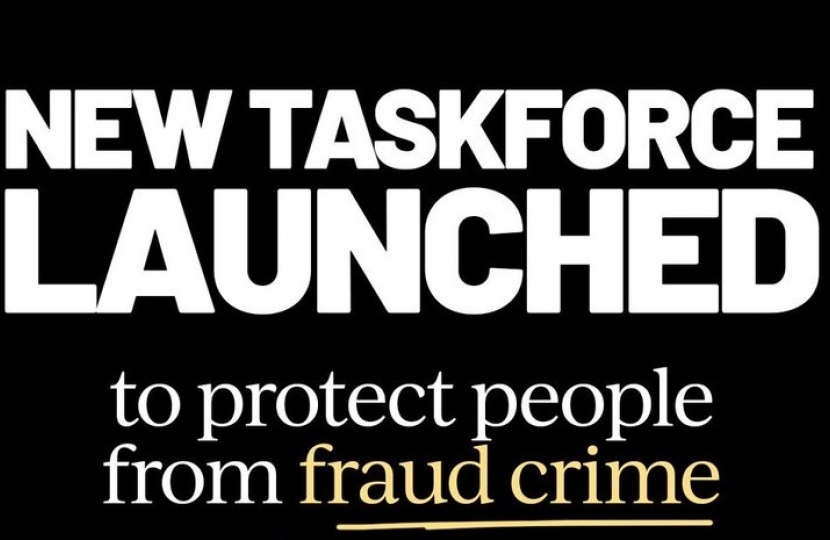
This article was written by Damian and published in this week's editions of the Herald and Petersfield Post:
"Back in September I had the opportunity to talk with staff during a visit to the TSB branch in Alton about the challenges of tackling fraud.
It is a devastating crime that impacts around one in thirteen of us each year, often in life-changing ways. As part of my Home Office brief as Security Minister, I am now chairing the re-launched Joint Fraud Taskforce (JFT).Data suggests that there has been a 24 per cent rise in fraud during the pandemic.
Research from the UK telecoms regulator Ofcom has shown that almost 45m people have been on the receiving end of potential scam texts or calls in the last three months.
Many categories of crime have mercifully been falling over a sustained period, but more criminals are moving online and covid has accelerated that.
More than eight in ten respondents said they had received a suspicious message, in the form of either a text, recorded message or live phone call, with three quarters of those aged 16-34 targeted.
But older people remain particularly vulnerable, with three in five of those aged over 75 reporting a potential scam call on their landline.
Operators are also witnessing the rise, with mobile network EE needing to block 18,000 sim cards used for the fraud over the same period.
The Joint Fraud Taskforce brings together experts from the most critical sectors – including banks and telecoms companies - to prevent perpetrators from exploiting vulnerabilities and fraud controls.
These public-private sector partnerships will enable challenging cross-sector issues to be addressed collectively, and the JFT will have oversight of the Fraud Action Plan and will track progress against voluntary sector agreements.
Three new fraud charters will commit key sectors to actions to protect people’s money, including measures to help victims of fraud get support, a pilot dynamic direct debit system to authenticate applications for new mobile phone contracts, and leveraging new technology to tackle the fraudulent practice of sending fake company text messages – known as ‘smishing’.
Signatories of the charters include the major high street banks, the big mobile operators and twelve leading UK accountancy bodies.
Criminals have taken advantage of the changing habits during the pandemic and exploited the particular vulnerabilities exposed by covid. Scams linked to courier and home delivery services as well as accessing covid vaccines and certifications are just a few examples.
The research conducted by Ofcom also found that almost 80 per cent of mobile phone users are not aware of the 7726 number that can be used to report a suspected text, and I would encourage anyone who received a suspicious text to forward it to 7726 for investigation by the provider.
Action Fraud is also a service that people can use to report fraud or cybercrime, and their online reporting tool means this can be done any time of day or night. More information on fraud and the help available can be found at https://www.damianhinds.com/campaigns/tackling-fraud
I welcomed the opportunity last week to talk to the Joint Committee on the Online Safety Bill about criminal content and activity online. Their report and recommendations will be carefully considered in ensuring there is no safe space for these fraudsters to operate."



